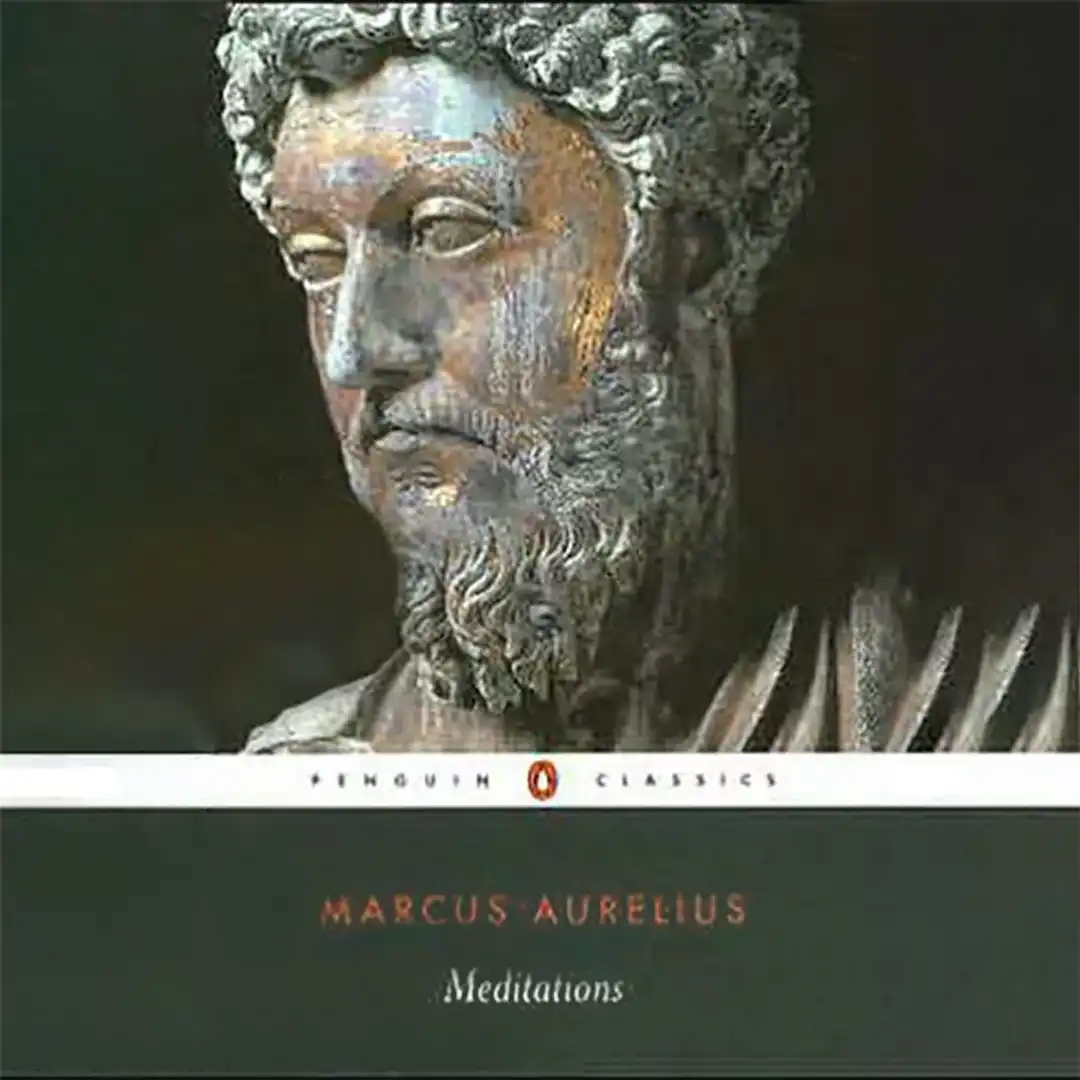The Emperor’s Inner Citadel: Stoic Reflections for a World in Turmoil
Table of Contents
A Private Journal That Became a Public Compass
Meditations was never intended for publication. Written in Greek during the waning decades of the Roman Empire, Marcus Aurelius composed this work as a series of personal reflections — a form of self-directed moral instruction rooted in Stoic philosophy. The original title, if one ever existed, has been lost. What we now call Meditations is likely a medieval label assigned to a text known simply as Ta eis heauton (“To Himself”).
And yet, despite its deeply personal tone, it has become one of the most widely read and admired books of practical philosophy. Its power lies in its tension: a ruler of the known world writes not as a sovereign, but as a student of virtue, reminding himself daily how to face death, suffering, anger, and duty with discipline and humility.
Content and Structure: Fragmented but Focused
Meditations is divided into 12 books, not chapters in the narrative sense, but clusters of thoughts — some aphoristic, others more extended — composed during different stages of Marcus’s life, likely while on military campaigns. There is no linear progression; themes recur and evolve as the emperor ages and contemplates his responsibilities and limitations.
The key themes include:
- Stoic Ethics: Align your will with nature, control only what is in your power, and accept the rest with equanimity.
- Impermanence: Everything is transient — fame, wealth, power, even grief and pain.
- Self-discipline: Guard your mind, practice temperance, and avoid indulgence.
- Duty and Service: One must fulfill their role in society, regardless of personal hardship or reward.
- Death: Not to be feared, but accepted as the natural conclusion of life.
The tone is meditative, not polemical. Marcus never preaches — he rehearses principles, repeatedly, as though trying to hammer wisdom into his own soul before time runs out.
What Makes It Endure
The endurance of Meditations lies not just in its Stoic content, but in its radical humility. This is no triumphalist memoir. Marcus frequently criticizes himself, laments his failings, and urges himself to improve. His voice is sincere, often weary, but always striving.
In a time when the Roman Empire was fraying at the edges — plagued by war, plague, and betrayal — Marcus offers no escape into fantasy. He stares directly into chaos and repeats: “You have power over your mind — not outside events. Realize this, and you will find strength.”
That kind of stoicism, grounded in action rather than abstraction, resonates across time and culture.
Strengths and Limitations
Strengths:
- Universality: The themes are eternal — applicable to soldiers, students, executives, or monks.
- Clarity: Despite being philosophical, it avoids jargon. Most passages are short and powerful.
- Practicality: Offers tools for real-world application — managing anger, fear, ego, or loss.
- Psychological Insight: Long before cognitive-behavioral therapy, Marcus understood the power of framing, detachment, and disciplined thought.
Limitations:
- Fragmentary Structure: There’s no cohesive arc. New readers may find it repetitive or disjointed.
- Contextual Gaps: Some references are obscure without knowledge of Stoic doctrine or Roman history.
- Tone: The relentless stoicism may seem cold or overly ascetic to those seeking emotional catharsis or spiritual transcendence.
Yet even these limitations are part of its authenticity. Marcus is not offering a polished product. He’s recording a lifelong internal battle with time, self, and duty.
Comparative Notes
If you’ve read Epictetus’ Discourses or Seneca’s Letters, Meditations feels less argumentative and more introspective. Where Epictetus drills, and Seneca persuades, Marcus reminds.
He rarely names other thinkers. Instead, he seems to be distilling the essence of Stoicism into personal commandments — actionable, grounded, and written as though he needed them to survive the weight of an empire.
Who Should Read It
- Anyone experiencing stress, burnout, or existential drift
- Readers looking for concise but profound philosophical insight
- Students of Roman history or classical philosophy
- People curious about the intersection of leadership and ethics
It’s best read in small doses, one book or even one passage at a time — ideally in the morning or at night, when its meditative voice can settle into the mind.
Final Thoughts
Meditations is the quiet mirror of a mind at war with itself. It reveals an emperor who mistrusts power, a philosopher who mistrusts pleasure, and a human being who mistrusts the permanence of anything.
And yet — out of this persistent mistrust emerges a kind of clarity. Not resignation, but resolve. Marcus Aurelius does not seek to change the world. He seeks to change how he meets it — moment by moment, with courage and restraint.
In a world of noise, Meditations remains one of the few books that invites silence — the kind that leads to insight, and perhaps, to peace.
TL;DR
| Category | Details |
|---|---|
| Author | Marcus Aurelius (Roman Emperor, 121–180 CE) |
| Method | Personal diary, Stoic moral reflections |
| Structure | 12 books of fragmentary, aphoristic entries |
| Skill Level | All levels — ideal for personal reflection or philosophical study |
| Teaching Style | Direct, meditative, self-critical |
| Strengths | Timeless insight, clarity, humility, psychological strength |
| Challenges | No narrative structure, occasional repetition, some contextual obscurity |
| Best For | Those seeking resilience, moral grounding, or a disciplined worldview |
| Companions | Epictetus’ Discourses, Seneca’s Letters, Pierre Hadot’s Inner Citadel |
| Verdict | A quiet masterpiece of Stoic self-discipline, still relevant after 1,800 years |

Leave a Reply